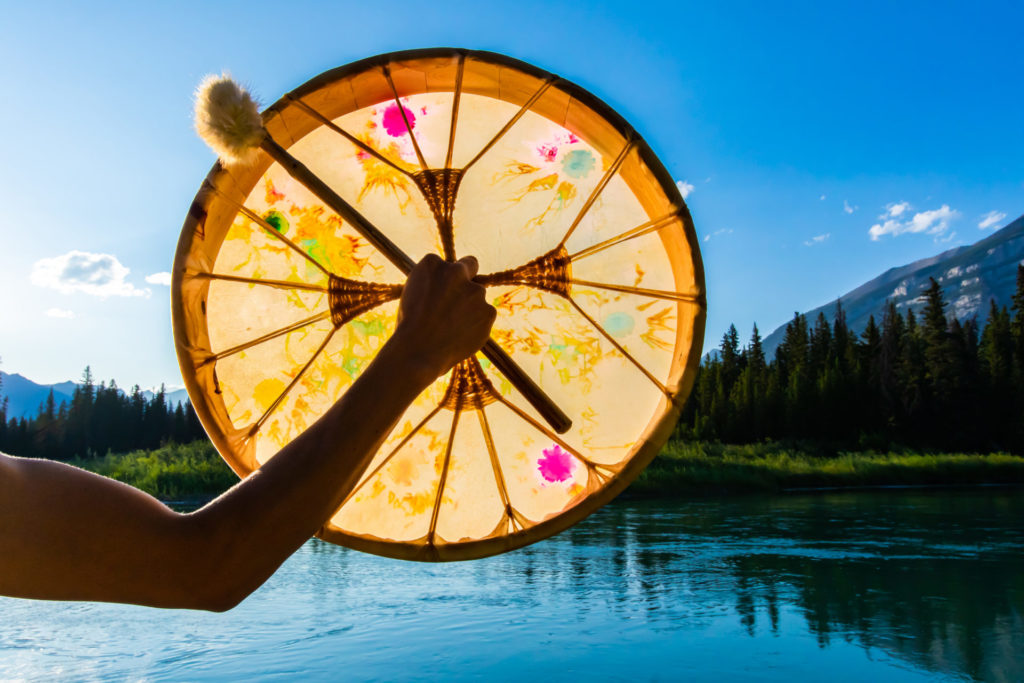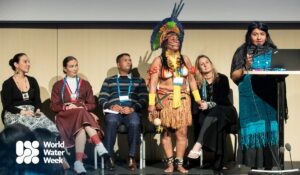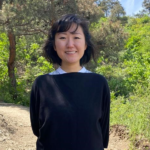- SIWI – Leading expert in water governance
- /
- Latest
- /
- Marking the international day of the world’s indigenous peoples
Marking the international day of the world’s indigenous peoples
Indigenous peoples play a vital role when it comes to the environment. As stewards of fragile marine, freshwater, and terrestrial ecosystems, their role and inclusion in equitable and sustainable water management is essential. Worldwide, indigenous peoples and ethnic minorities also suffer disproportionally from economic, social and political marginalization and human rights violations, including poor access to water and sanitation services.

In order to raise awareness of indigenous peoples, every 9 August commemorates the International Day of the World’s Indigenous Peoples, chosen in recognition of the first meeting of the UN Working Group on Indigenous Populations held in Geneva in 1982. This year, the UNDP-SIWI Water Governance Facility (WGF) will host an online dialogue highlighting the role of indigenous peoples’ knowledge and perspectives in sustainable water management and climate change, and what other communities could learn from them.
This interactive conversation featuring UN Special Rapporteurs and indigenous community representatives will address following questions:
- How can indigenous ecological knowledge, values, and solutions contribute to improved sustainable water management and other water-related shocks and stresses related to current Covid-19 pandemic?
- How can indigenous ecological knowledge, values, and solutions contribute to climate action, specifically when it comes to the mitigation of and adaptation to climate change?
- What are the efforts taken to recognize the value of indigenous/ traditional knowledge in international policies and conventions?
- How are various human rights (i.e. the rights of indigenous peoples, the right to safe drinking water and sanitation, the right to the enjoyment of a safe, clean, healthy and sustainable environment) interlinked and how can addressing them in concert enhance the realization of the global agendas, including the Paris Agreement and the SDGs?
- This year being the tenth anniversary of the UN General Assembly resolution recognizing the human rights to water and sanitation, how has the resolution helped protect and advance the rights of indigenous peoples with regard to water and sanitation?
Agenda
16.00 – Welcome and Introduction
Karin Gardes, Chief Operations Officer, SIWI
16.10 – Speakers
Francisco Calí Tzay, UN Special Rapporteur on the Rights of Indigenous Peoples
Leo Heller, UN Special Rapporteur on the Human Right to Safe Drinking Water and Sanitation
Josefina Skerk, Advocate for Sami Rights and former Vice President of the Sami Parliament in Sweden
Alex Lucitante, Board Member of Alianza Ceibo, 2020 winner of the UNDP Equator Prize
16.40 – Open Discussion and Q&A with speakers
16.55 Closing Remarks
Karin Gardes, Chief Operations Officer, SIWI

Most recent

SIWI’s endorsement of the COP29 Declaration on Water for Climate Action
- Water and climate
- World Water Week
- Water governance

SIWI-WASH experts join IVL
- Water, Sanitation and Hygiene (WASH)
- Water governance

Women hold the key to building climate resilience
- Gender and water
- Resilience through water

Reflections from World Water Week 2024: Unlocking Water Cooperation Solutions

Indigenous Peoples’ knowledge to break down borders and challenges

First Nations Focus at World Water Week



